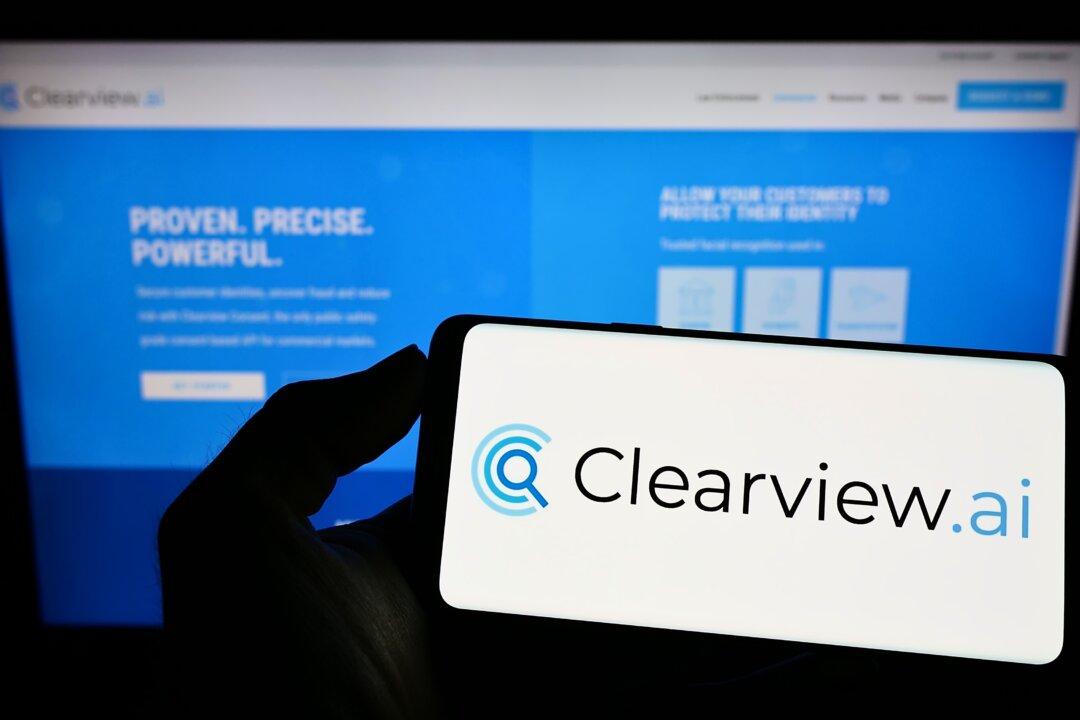A facial recognition firm fined more than £7.5 million by a privacy watchdog for storing the personal data of UK residents has overturned the sanction in court.
Clearview AI—which collected billions of online images of people’s faces and data from across the world—won the appeal on Wednesday, according to the BBC.





